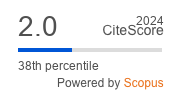Influence of Innate Immunity on Immune Tolerance
DOI:
https://doi.org/10.5644/ama2006-124.295Keywords:
Antigen-Presenting Cells, Cytokines, Central Immune Tolerance, Innate Immunity, Peripheral Immune ToleranceAbstract
This review mainly focuses on the mechanisms of peripheral immune tolerance within the perspectives of innate immunity.
Healthy immune response requires balanced interaction of the highly specialized elements of immunity within a harmony. In- nate immunity supported by microbial pattern recognition receptors, physical anatomical barriers and soluble effectors stands as the first line of defense against non-self-antigens. Innate receptors recognize major classes of pathogens and trigger immedi- ate immune/inflammatory responses. The decisive action has been the key issue in skewing of immune reactivity to a pathogen or to tolerate self- and non-self-antigens. Non-responsiveness to self- or to harmless foreign antigens with means of multiple mechanisms is known as immune tolerance; a non-inflammatory, non-proliferative and suppressive response linked to suppres- sor molecules as CTLA-4 and cytokines like IL-10, TGF-β and IL-35, and also to non-inflammatory blocking antibody isotypes as IgG4. Regulatory cells ascertain both induction and maintenance of peripheral tolerance. Allergic diseases, autoimmunity and transplant rejection are the best illustrations of immune tolerance loss. Adaptive immunity responsible for both establishment and maintenance of a long-lasting immune responsiveness is mainly fine-tuned by actions of innate immunity. Better under- standing of the relationship between innate immunity and immune tolerance is a prerequisite both for better understanding of pathogenesis of tolerance-related diseases and also for development of novel therapeutic options.
Conclusion. Recent evidences point the important roles of innate immunity for establishment of immune tolerance with decisive role in central mechanisms. In a peremptory way, a ‘balanced tolerance’ is essential for the survival.
Downloads
Published
Issue
Section
License
Copyright (c) 2020 Umut C. Kucuksezer, Cevdet Ozdemir, Mubeccel Akdis, Cezmi A. Akdis

This work is licensed under a Creative Commons Attribution-NonCommercial 4.0 International License.





